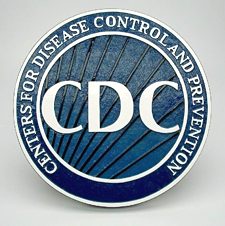 BOSTON, Mass.—The United States Centers for Disease Control and Prevention have awarded Fenway Health, AIDS Action Committee of Massachusetts, and the Multicultural AIDS Coalition $3.78 million for a five-year HIV prevention partnership that will focus on gay, bisexual, and other men who have sex with men (MSM) and transgender women, the groups at highest risk of HIV infection in the US. Dubbed ‘Getting to Zero,’ the initiative will target hard-to-reach, high risk members of these communities and connect them to HIV counseling and testing, health care, and prevention services.
BOSTON, Mass.—The United States Centers for Disease Control and Prevention have awarded Fenway Health, AIDS Action Committee of Massachusetts, and the Multicultural AIDS Coalition $3.78 million for a five-year HIV prevention partnership that will focus on gay, bisexual, and other men who have sex with men (MSM) and transgender women, the groups at highest risk of HIV infection in the US. Dubbed ‘Getting to Zero,’ the initiative will target hard-to-reach, high risk members of these communities and connect them to HIV counseling and testing, health care, and prevention services.
“Massachusetts is one of the few places in the country where HIV infections are on the decline. By focusing on those people at highest risk of transmitting HIV and giving them the resources they need to keep themselves and their partners safe and healthy, we have a real chance of all but eliminating new HIV infections and ensuring that people who are living with HIV maintain healthy, productive lives,” said Stephen L. Boswell, MD, FACP, President & CEO of Fenway Health. [pullquote]“Massachusetts is one of the few places in the country where HIV infections are on the decline. By focusing on those people at highest risk of transmitting HIV and giving them the resources they need to keep themselves and their partners safe and healthy, we have a real chance of all but eliminating new HIV infections and ensuring that people who are living with HIV maintain healthy, productive lives,” said Stephen L. Boswell, MD, FACP, President & CEO of Fenway Health.[/pullquote]
Gay and bisexual men are more severely affected by HIV than any other group in the United States. Among all gay and bisexual men, Black/African American gay and bisexual men bear a disproportionate burden of HIV, with infections among young black/African American gay and bisexual men increasing 20% between 2008 and 2010. Transgender women are also at high risk for HIV infection, with Black/African American transgender women being particularly affected.
‘Getting to Zero’ will employ culturally appropriate messaging and outreach approaches to connect people from those communities at highest risk of HIV infection to care and services.
“People of color, especially Black people, are disproportionately impacted in all areas of the HIV/AIDS epidemic, and this is especially true among MSM and transgender people,” said Gary Daffin, Executive Director of the Multicultural AIDS Coalition. “Our goal is to connect with those people who are not being reached by traditional outreach and prevention initiatives and get them the tools and resources that will help keep them safe and healthy.”
Between 2000 and 2011, new HIV infections in Massachusetts declined 44%. ‘Getting to Zero’ will build on that success to further reduce HIV infections while also increasing the number of HIV-infected people in the state who are aware of their status and connected with care. The initiative will reach high-risk people through outreach in their neighborhoods and through social networks, mobile HIV testing van outreach in underserved communities, and by working with clients and patients who have fallen out of care. [pullquote]“People of color, especially Black people, are disproportionately impacted in all areas of the HIV/AIDS epidemic, and this is especially true among MSM and transgender people,” said Gary Daffin, Executive Director of the Multicultural AIDS Coalition.[/pullquote]
Health navigation services will be provided to newly and previously diagnosed HIV positive people and high risk HIV negative individuals. Navigators will ensure that HIV positive clients are linked to primary care and connected to prevention, adherence and peer support programs to improve their health outcomes and reduce the likelihood of transmission. Navigation for high risk negative clients will ensure they understand all prevention options, including correct use of condoms, the potential benefits of biomedical prevention, and how to access PEP (post-exposure prophylaxis) and PrEP (pre-exposure prophylaxis) as appropriate. Navigators will connect both positive and negative clients to medical care, mental health, and substance abuse services, as well as additional essential support services and prevention interventions.
“We’ve made great progress in reducing HIV infections in Massachusetts and this partnership aims to supplement the long-established approaches with new ones, including biomedical prevention tools like PrEP,” said Carl Sciortino, Executive Director of AIDS Action Committee of Massachusetts. “At the same time, we want to make sure that people who are living with HIV have access to life-saving care and services.”
More about Fenway Health: www.fenwayhealth.org.
More about AIDS Action Committee of Massachusetts: www.aac.org.
More about the Multicultural AIDS Coalition: www.mac-boston.org.
[From a News Release]







